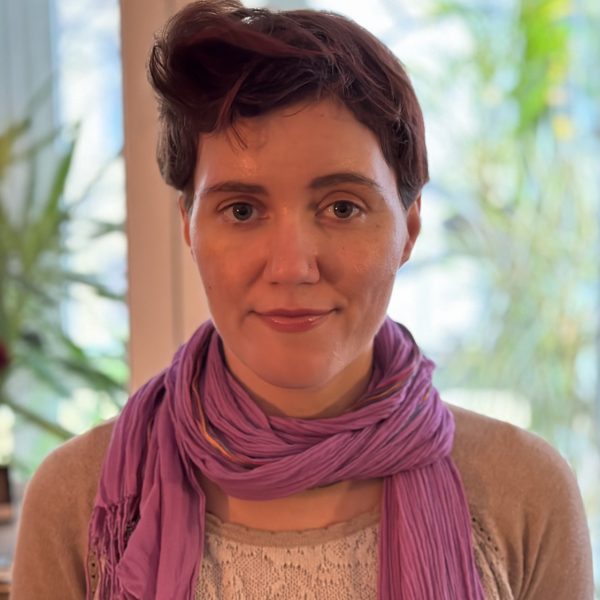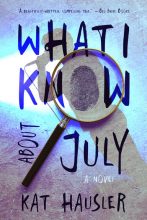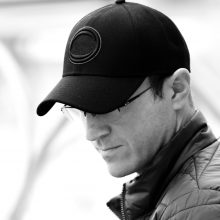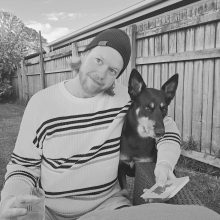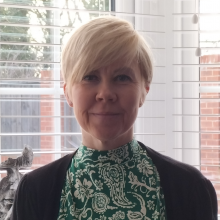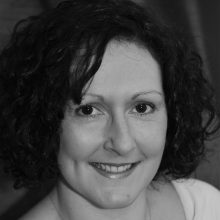What I Know About July by Kat Hausler
What led you into writing?
A love of books and stories. I’m fascinated by the insight they give us into other lives and worlds. I also love language down to the level of expressions and individual words.
How does a typical day look?
When I’m working on writing, I dawdle more than I like when I start for the day, although I tell myself that’s part of the process. I look at the notes I wrote down on where I want to go next, and I think about how to get there. Usually, I’ll also read through what I wrote last, so I’m “in” the story again, then start writing when I get to the end of what I already have. But sometimes a random vivid scene for a completely different part of the book occurs to me, so I drop everything and go and write that. Towards the end of the day, I try to outline what comes next, so, even if I end up doing something different, I at least have the record of what my intentions were to help me get started the next day.
In what ways do your characters test your abilities?
It’s always a delicate balance because, if you write characters who are too much like you, you can be missing the necessary distance to see what needs explaining, since the way they are just seems logical to you. But then when you write characters who are very different, you need to identify with them just as much as if they were like you, yet make their thoughts, words and behavior consistent with the different person they are. So it’s imagination, conceiving of how this different person would interact with the situation you’ve put them in, it’s consistency throughout that character and their experience, and it’s empathy, being able to identify deeply with someone unlike yourself.
What’s your setup?
I occasionally write by hand in a notebook, but I mostly work on my laptop and mostly from home. I often have a lot of different files on the go for a single project, for notes or ideas or scenes I’ve written but not placed or scenes I want but haven’t written, and so on.
What lasting effects have your favourite authors had on your writing and style?
Daphne DuMaurier is one influence on how I try to build up tension in a book. If you look at her novels like Rebecca, for example, you have this sense of dread starting quite early on, long before you can identify the exact source, and then it builds. Pacing is important.
What do you do for inspiration?
Nothing particular outside of my usual life. I tend to jot down scenarios or even scenes with no further context as they occur to me based on situations I encounter or hear about or books, movies, news articles, etc. I let them sit until I have more thoughts about how to flesh them out. Some never go anywhere, and some become something years later.
What repeating themes do you find yourself pulling into your stories?
That’s an interesting question. One thing that interests me and recurs in a lot of my work is the gulf between the self we project to the world and what’s actually going on in our heads. Which also includes the inverse: seeing someone from outside and having all these ideas about who they are, with no real access to their interiority. In Retrograde, that’s an amnesiac wife and her lying husband, each trying to guess what the other knows about the past, or, in What I Know About July, there’s the stalker July who has her whole entire narrative about who her idol Simon is, and then the way Simon sees her, as something uncanny and frightening.
How do you wind down?
Taking walks, watching horror movies, doing crosswords and of course reading.
What sort of challenges do you regularly overcome while designing your world/setting?
Setting things in Berlin and making them realistic for this city but accessible and clear to people who live elsewhere. Or when things are set in the past like What I Know About July, which takes place in 2015, thinking about big things like what was going on politically that year or small things like what apps people were using on their phones back then. And, in any story, just the location of things. What neighborhood does each character live in, and in what kind of apartment, commensurate with what that person would be able to afford? What do they see when they go out for the day?
What are you reading at the moment?
The Faerie Queene by Edmund Spenser, The Untelling by Tayari Jones, Daheim by Judith Hermann
What’s the most useful advice you could give to an aspiring author?
Try to look at your story like you’re a stranger to it, because that’s what your readers will be. They have no background knowledge of who you are, where you’re from, how you pictured your characters or anything. You have to give them that information seamlessly by integrating it into the story.
Tell us about the book you’re promoting.
What I Know About July is a literary thriller about an angsty indie musician desperate to get his stalker out of his life – until she disappears and he becomes obsessed with finding out what happened.
👋 Hi! I run Author Interviews
As a new writer I found myself itching to contribute to a thriving, creative community, so I made Author Interviews and I've met loads of wonderful people in the process. You can buy my debut fantasy RINGLANDER: THE PATH AND THE WAY from Amazon.
